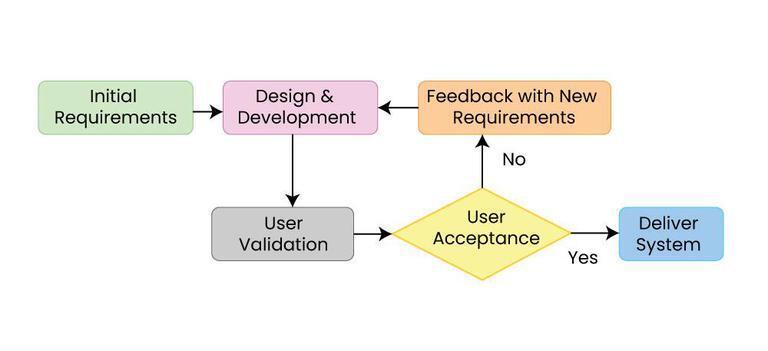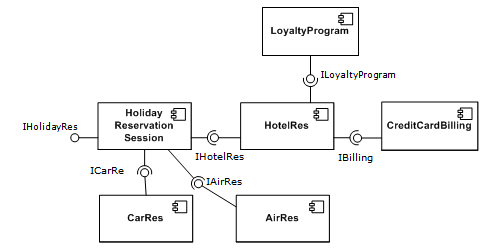|
Java Interface Definition Language
In software development, Java Interface Definition Language, or Java IDL, is an implementation of the CORBA specification and enables interoperability and connectivity with heterogeneous objects. It is basically an Object Request Broker provided with JDK. The Java IDL enables distributed Web applications to transparently invoke operations on remote network services using the industry standards interface description language (IDL) and Internet InterORB Protocol IIOP from Object Management Group The Object Management Group (OMG®) is a computer industry Standards Development Organization (SDO), or Voluntary Consensus Standards Body (VCSB). OMG develops enterprise integration and modeling standards for a range of technologies. Busin .... External links Sun Developer Network: Core Java: Java IDLJDK 6 Java IDL-related APIs & Developer Guides Java (programming language) {{prog-lang-stub ... [...More Info...] [...Related Items...] OR: [Wikipedia] [Google] [Baidu] |
Software Development
Software development is the process of designing and Implementation, implementing a software solution to Computer user satisfaction, satisfy a User (computing), user. The process is more encompassing than Computer programming, programming, writing source code, code, in that it includes conceiving the goal, evaluating feasibility, analyzing software requirements, requirements, software design, design, software testing, testing and software release life cycle, release. The process is part of software engineering which also includes management, organizational management, Software project management, project management, configuration management and other aspects. Software development involves many skills and job specializations including software programmer, programming, software test, testing, Technical writing, documentation, graphic design, user support, marketing, and fundraising. Software development involves many software tools, tools including: compiler, integrated develo ... [...More Info...] [...Related Items...] OR: [Wikipedia] [Google] [Baidu] |
CORBA
The Common Object Request Broker Architecture (CORBA) is a standard defined by the Object Management Group (OMG) designed to facilitate the communication of systems that are deployed on diverse platforms. CORBA enables collaboration between systems on different operating systems, programming languages, and computing hardware. CORBA uses an object-oriented model although the systems that use the CORBA do not have to be object-oriented. CORBA is an example of the distributed object paradigm. While briefly popular in the mid to late 1990s, CORBA's complexity, inconsistency, and high licensing costs have relegated it to being a niche technology. Overview CORBA enables communication between software written in different languages and running on different computers. Implementation details from specific operating systems, programming languages, and hardware platforms are all removed from the responsibility of developers who use CORBA. CORBA normalizes the method-call semantics betwee ... [...More Info...] [...Related Items...] OR: [Wikipedia] [Google] [Baidu] |
Heterogeneous
Homogeneity and heterogeneity are concepts relating to the uniformity of a substance, process or image. A homogeneous feature is uniform in composition or character (i.e., color, shape, size, weight, height, distribution, texture, language, income, disease, temperature, radioactivity, architectural design, etc.); one that is heterogeneous is distinctly nonuniform in at least one of these qualities. Etymology and spelling The words ''homogeneous'' and ''heterogeneous'' come from Medieval Latin ''homogeneus'' and ''heterogeneus'', from Ancient Greek ὁμογενής (''homogenēs'') and ἑτερογενής (''heterogenēs''), from ὁμός (''homos'', "same") and ἕτερος (''heteros'', "other, another, different") respectively, followed by γένος (''genos'', "kind"); -ous is an adjectival suffix. Alternate spellings omitting the last ''-e-'' (and the associated pronunciations) are common, but mistaken: ''homogenous'' is strictly a biological/pathological term whic ... [...More Info...] [...Related Items...] OR: [Wikipedia] [Google] [Baidu] |
Object (computer Science)
In software development, an object is an entity that has state, behavior, and identity. An object can model some part of reality or can be an invention of the design process whose collaborations with other such objects serve as the mechanisms that provide some higher-level behavior. Put another way, an object represents an individual, identifiable item, unit, or entity, either real or abstract, with a well-defined role in the problem domain. A programming language can be classified based on its support for objects. A language that provides an encapsulation construct for state, behavior, and identity is classified as object-based. If the language also provides polymorphism and inheritance it is classified as object-oriented. A language that supports creating an object from a class is classified as class-based. A language that supports object creation via a template object is classified as prototype-based. The concept of object is used in many different software contexts, ... [...More Info...] [...Related Items...] OR: [Wikipedia] [Google] [Baidu] |
Java Development Kit
The Java Development Kit (JDK) is a distribution of Java technology by Oracle Corporation. It implements the Java Language Specification (JLS) and the Java Virtual Machine Specification (JVMS) and provides the Standard Edition (SE) of the Java Application Programming Interface (API). It is derivative of the community driven OpenJDK which Oracle stewards. It provides software for working with Java applications. Examples of included software are the Java virtual machine, a compiler, performance monitoring tools, a debugger, and other utilities that Oracle considers useful for Java programmers. Oracle releases the current version of the software under the Oracle No-Fee Terms and Conditions (NFTC) license. Oracle releases binaries for the x86-64 architecture for Windows, macOS, and Linux based operating systems, and for the aarch64 architecture for macOS and Linux. Previous versions supported the Oracle Solaris operating system and SPARC architecture. Oracle's primary implementat ... [...More Info...] [...Related Items...] OR: [Wikipedia] [Google] [Baidu] |
Interface Description Language
An interface description language or interface definition language (IDL) is a generic term for a language that lets a program or object written in one language communicate with another program written in an unknown language. IDLs are usually used to describe data types and interfaces in a language-independent way, for example, between those written in C++ and those written in Java. IDLs are commonly used in remote procedure call software. In these cases the machines at either end of the ''link'' may be using different operating systems and computer languages. IDLs offer a bridge between the two different systems. Software systems based on IDLs include Sun's ONC RPC, The Open Group's Distributed Computing Environment, IBM's System Object Model, the Object Management Group's CORBA (which implements OMG IDL, an IDL based on DCE/RPC) and Data Distribution Service, Mozilla's XPCOM, Microsoft's Microsoft RPC (which evolved into COM and DCOM), Facebook's Thrift and WSDL for W ... [...More Info...] [...Related Items...] OR: [Wikipedia] [Google] [Baidu] |
IIOP
In distributed computing, General Inter-ORB Protocol (GIOP) is the message protocol by which object request brokers (ORBs) communicate in CORBA. Standards associated with the protocol are maintained by the Object Management Group (OMG). The current version of GIOP is 2.0.2. The GIOP architecture provides several concrete protocols, including: # Internet InterORB Protocol (IIOP) — The Internet Inter-Orb Protocol is an implementation of the GIOP for use over the Internet, and provides a mapping between GIOP messages and the TCP/IP layer. # SSL InterORB Protocol (SSLIOP) — SSLIOP is IIOP over SSL, providing encryption and authentication. # HyperText InterORB Protocol (HTIOP) — HTIOP is IIOP over HTTP, providing transparent proxy bypassing. # Zipped InterORB Protocol (ZIOP) — A zipped version of GIOP that reduces the bandwidth usage Environment Specific Inter-ORB Protocols As an alternative to GIOP, CORBA includes the concept of an Environment Specific In ... [...More Info...] [...Related Items...] OR: [Wikipedia] [Google] [Baidu] |
Object Management Group
The Object Management Group (OMG®) is a computer industry Standards Development Organization (SDO), or Voluntary Consensus Standards Body (VCSB). OMG develops enterprise integration and modeling standards for a range of technologies. Business activities The goal of the OMG was a common portable and interoperable object model with methods and data that work using all types of development environments on all types of platforms. The group provides only specifications, not implementations. But before a specification can be accepted as a standard by the group, the members of the submitter team must guarantee that they will bring a conforming product to market within a year. This is an attempt to prevent unimplemented (and unimplementable) standards. Other private companies or open source groups are encouraged to produce conforming products and OMG is attempting to develop mechanisms to enforce true interoperability. OMG hosts four technical meetings per year for its members an ... [...More Info...] [...Related Items...] OR: [Wikipedia] [Google] [Baidu] |

